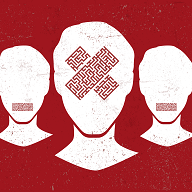However, harm reduction is struggling to gain a lasting foothold. Subjected to strong opposition in society, these measures are even more difficult to become accepted in detention. The prison is faced with a dilemma: How to bring this type of intervention into such a restrictive place?
Irène Aboudaram and Marie Hornsperger worked for Doctors of the World to implement health awareness campaigns at the Nantes-Carquefou prison (France). For them, “prison guards face an ethical dilemma. It is hard for them to accept the idea of facilitating the use of a substance which is not only illicit, but shouldn’t be on site in the first place.”
Security is often used to justify the refusal to implement harm reduction interventions. This is particularly the case regarding needle exchange programmes. France, Belgium and Ireland do not provide for such programmes in prison. The needle exchange programme raises questions and concerns. Sandra Ka Hon Chu, from the HIV Legal Network, explained that the guards are afraid that the syringes will be used as weapons. However, the findings of health professionals do not support this claim. Svetlana Doltu explained that “in 20 years of needle exchange in the Moldovan prisons, we have not recorded any aggression with needles.”
In Canada, a needle exchange programme has existed since 2018. It is the result of a long legal battle waged by civil society organisations. They considered that the lack of sterile supplies was detrimental to the prisoners’ health. In reality, the programme is hardly implemented. “To gain access to the needle exchange programme, prisoners have to go through so many hurdles”, explained Sandra Ka Hon Chu. The nurses must approve their participation, as well as the chief supervisor. They can therefore freely access the programme only on condition of renouncing their anonymity. “The needle exchange model in Canadian prisons does not conform to any of those recommended by the United Nations. The guards will have a closer eye on people using the programme. They will be more likely to search through their things and to punish them, because drugs are still prohibited.”, regretted Sandra Ka Hon Chu. This approach dissuades people who need it from joining the programme. The HIV Legal Network considers that the existence of the programme is good news“but it is not the right one. As a result, people are still sharing syringes“.
Disinfectants are sometimes distributed instead of sterile equipment. In France, according to the “Handbook for new inmates”, “the prison administration provides a bottle of 12° bleach every two weeks to decontaminate objects that might come in contact with blood (razor, needle, shaver, etc.)”.
Distributing the bleach to prisoners is laborious. Olivier Bagnis explained: “Bleach distribution is complicated as all services are constantly passing the buck. For the 12 years that I have worked in detention, this has not changed. We have reached a point where we [the medical teams] are handing them out. This should be done by the prison administration, but this is not usually the case”. Its effectiveness is also questioned, including by Doctors of the World: “The bleach is diluted to 12° to limit the risks of intoxication and suicides by ingestion. There is no proof that such a low concentration can properly disinfect anything.”
Avoiding incidents and assaults, preventing suicides… so many reasons given to not implement certain prison risk reduction programmes. The argument on security has its limits, and the prison administrations sometimes struggle to explain their reluctance. This is also the case for condom distribution. In France, the “Handbook for new inmates” specifies that condoms are made available free of charge by the prison administration and the health staff. Olivier Bagnis nevertheless explained that, in general, “it is very difficult to hand out condoms. There is always reluctance, not only from the prison administration but also from the prisoners. The administration insists that there are no sexual activities in prison. Although untrue, this is often their statement. An elephant in the room, male homosexuality in detention is frowned upon and unaccepted.” Condoms, when handed out, are often only available at the medical unit, as explained by Mélanie Kinné, head of the prison health units in the University Hospital of Nîmes.
In Ireland, access to condoms is also considered difficult. Sophie*, a social in-reach worker , explained: “I know of one prisoner who asked for a condom in Wheatfield prison. They gave him, but it made the headlines (2014). We are very backwards with anything to do with sex.” In Canada, Sandra Ka Hon Chu reported that condoms, lubricants and dental dams should be made available. She specified that the situations vary from one prison to another, but the reality is that prisoners report difficulties accessing them.
In the absence of official guidelines, some health workers take personal initiatives. In the prison infirmary, they provide the necessary treatment with or without the consent of the prison administration. According to Doctors of the World, “while it’s encouraging to see that people are setting up such measures, unfortunately there is no systemisation. The day the doctor giving out syringes retires, the whole system stops. This really raises the question of how sustainable these initiatives are.”










